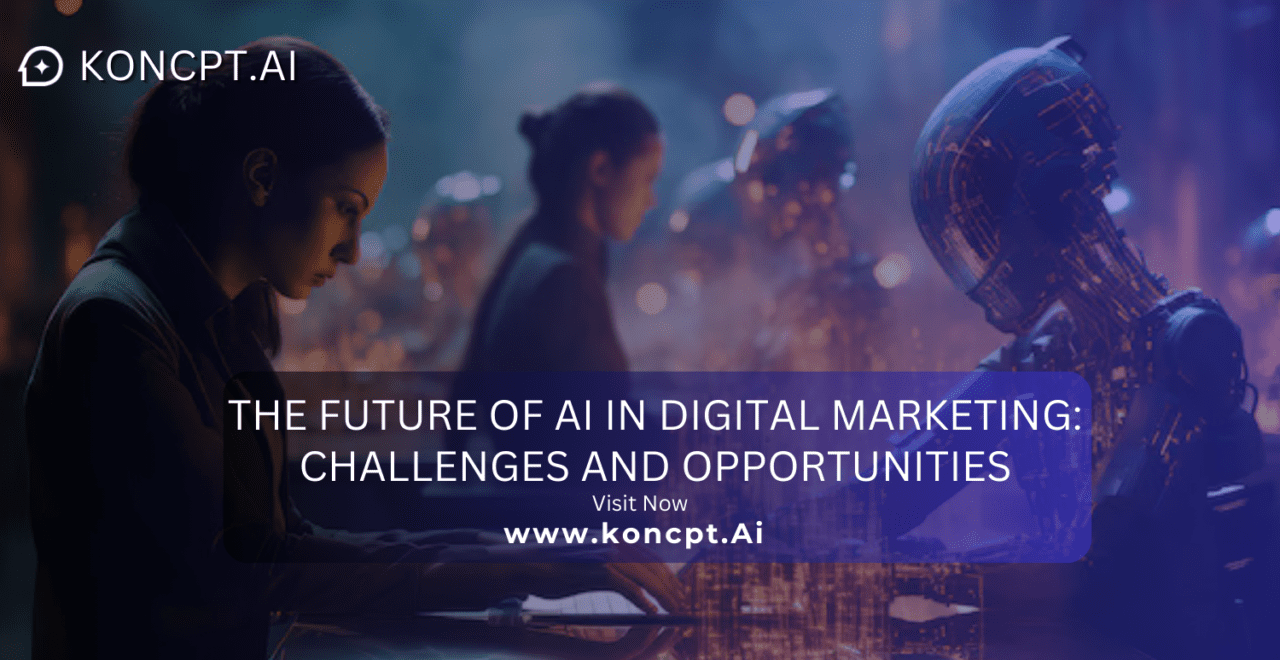The Future of AI in Digital Marketing: Challenges and Opportunities
As we dive deeper into the integration of artificial intelligence in digital marketing, it becomes evident that AI isn’t just a passing trend. Its ability to automate, optimize, and personalize campaigns at scale is unmatched. Yet, with every revolutionary technology comes a set of challenges and opportunities. Let’s explore these facets in detail.
Opportunities for Marketers
- Effortless Campaign Personalization
AI algorithms excel at creating individualized experiences for users. For instance, tools like Dynamic Yield use AI to serve unique product recommendations, tailored offers, and even personalized website layouts. Such capabilities drive customer loyalty and significantly boost conversions. - Smarter Lead Generation
AI simplifies lead scoring and qualification by analyzing historical data to predict which leads are most likely to convert. This ensures that sales teams can focus on high-value opportunities, increasing productivity and revenue. - Advanced Content Creation
AI-powered content tools like Copy.ai and Jasper help marketers produce high-quality content in minutes, saving time while maintaining creativity. From social media captions to blog posts, these tools cater to the growing demand for fast, engaging content. - Cross-Channel Integration
AI enables seamless integration across multiple marketing channels, ensuring that messaging remains consistent whether it’s on social media, email, or paid ads. This omnichannel approach ensures a cohesive customer journey, maximizing the impact of campaigns.
Challenges in AI Adoption
- Data Privacy Concerns
AI relies heavily on user data, raising concerns about privacy and compliance with regulations like GDPR and CCPA. Businesses must balance the use of AI for personalization with the need to protect customer data and maintain transparency. - Dependence on Quality Data
AI’s effectiveness depends on the quality and volume of data it processes. Inconsistent or biased data can lead to inaccurate predictions and suboptimal campaign performance. - Human Oversight
While AI automates many tasks, it still requires human oversight to ensure ethical practices and creativity in campaigns. Over-reliance on AI could lead to generic messaging that lacks emotional resonance. - Cost of Implementation
For small businesses, adopting AI-driven tools and platforms can be cost-prohibitive. However, as AI technologies become more accessible, this barrier is gradually diminishing.
Looking Ahead: The Next Frontier in AI Marketing
- AI-Powered Video Content
With video becoming the preferred medium for online consumption, AI tools like Pictory and Lumen5 are enabling marketers to create engaging video content quickly. Future advancements in AI could include real-time video editing and personalized video recommendations. - Predictive Content Marketing
AI will play a greater role in identifying trending topics and predicting content performance, helping marketers craft campaigns that resonate with audiences even before they launch. - Augmented Reality (AR) Experiences
AI-driven AR is poised to revolutionize how brands engage with customers. From virtual try-ons in e-commerce to immersive brand storytelling, AR experiences will set new standards for interactivity. - AI for Sustainability Marketing
As consumers demand more environmentally conscious practices, AI will help brands optimize supply chains, reduce waste, and craft authentic sustainability narratives, aligning with global efforts to combat climate change.
Conclusion
The future of digital marketing lies in embracing AI’s full potential while addressing its challenges responsibly. Businesses that leverage AI effectively will not only enhance their marketing ROI but also build stronger relationships with their customers. With AI continuing to evolve, marketers must stay informed, adaptive, and innovative to harness its power and stay ahead in the ever-changing digital landscape.



